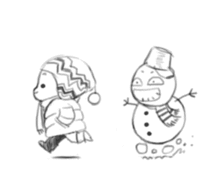- The Market:
-Take your grocery bags back to the store for reuse, or use a permanent bag.
-Some food is sold wrapped in 3 or 4 layers of packaging...try to buy brands with minimum packaging.
-Try not to use throwaway cameras, flashlights or shaving razors.
-Buy packaged goods in bulk.
-Buy used goods (junk yards, thrift stores, garage/yard sales).
-Buy products in recyclable and/or recycled containers.
-Avoid plastics and disposable plates, cups and utensils.
-Buy/use cloth diapers instead of disposable. - At Home:
-Try to stop junk mail or get off as many junk mail lists as possible.Recycle used motor oil.
-Compost food wastes and yard debris.
-Mend and repair rather than discard and replace.
-Separate aluminum, glass, newspaper, cardboard, white paper and colored paper before recycling.
-Use rags instead of paper towels.
-Use a coffee mug instead of disposable cups.
-Use both sides of paper sheets. - Home Energy Use
-Insulate, caulk and weatherstrip your home. Insulate floors with carpeting. Install double-paned windows.
-Install a timer on your thermostat.
-Wear a sweater rather than turn up the thermostat.
-Install a solar water heater.
-Insulate you water heater and storage tank.
-Keep your water heater at 120 degrees.
-Use energy-efficient appliances.
-Use fluorescent in place of incandescent light.
-Turn off lights and appliances when not in use.
-Plant trees to shade your house in summer.
-Hang your clothes in the sun to dry.
-Keep lint screen and outside exhaust on dryer clean. - Getting Around
-Use public transportation, carpool, bike or walk.
-Drive a fuel-efficient car.
-Keep your car well-tuned.
-Live close to your place of work.
-Call ahead before you shop and consolidate errands. - Trees
-Plant trees in your community.
-Plant fruit & nut trees in your backyard.
-Don't buy products made from tropical hardwoods. - Water Conservation
-Install a water-saving showerhead.
-Take showers rather than baths.
-Install a space-occupier in your toilet.
-Install sink faucet aerators.
-Turn off the water between rinses when shaving and brushing teeth.
-Use a broom rather than hose to clean walkways.
-Don't let the hose run when you wash your car.
-Wash your car with a bucket of soapy water.
-Water plants and lawn in the morning to minimize evaporation.
-Install a drip-irrigation water system.
-Plant drought-tolerant plants. - Pesticides/Eating Habits
-Eat lower on the food chain.
-Buy organic foods to discourage pesticide use.
-Grow your own food using alternatives to pesticides.
-Buy foods without additives and preservatives.
-Avoid highly processed foods.
-Support food co-ops and farmer's markets.
-Buy foods grown or produced locally.
-Be creative with leftover food. - Hazardous Products
-Use biodegradable soaps and detergents.
-Use alternatives to toxic household products.
-Dispose of household hazardous wastes properly.
-Use rechargable batteries.
-Purchase appliances with alternatives to ozone-damaging chlorofluorocarbons.
-Think about purchasing a car without air conditioning to avoid using CFC's.
-Purchase a halon-free fire extinguisher. - Activism
-Educate yourself and others on environmental issues.
-Purchase from environmentally responsible businesses.
-Know the voting records of your elected officials; write letters to your representatives supporting environmental action.
-Get involved in local politics to influence local environmental policy decisions.
-Take time to learn about and enjoy nature!
Tuesday, November 10, 2009
~ help our earth ~
Subscribe to:
Post Comments (Atom)
 >>>Thanks for your visit to my CHILDISH blog !!<<<
>>>Thanks for your visit to my CHILDISH blog !!<<<
No comments:
Post a Comment